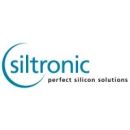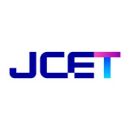Singapore produces 10 percent of the world’s semiconductors and roughly 20 percent of semiconductor manufacturing equipment. Some of the biggest semiconductor companies in the world are attracted to Singapore’s talented workforce, favorable business climate and rich semiconductor ecosystem consisting of chip manufacturers, material suppliers and companies that assemble, test and package semiconductors. In the list below, we’ll introduce you to the biggest names in the Singapore semiconductor industry.
Top Semiconductor Companies in Singapore
- Micron
- GlobalFoundries
- Siltronic
- Applied Materials
- Silicon Box
- AMD
- Broadcom
20 Semiconductor Companies in Singapore to Know
Micron, a semiconductor company specializing in computer memory and data storage, employs nearly 9,000 workers across three wafer fabrication facilities and a test and assembly facility in Singapore. Singapore is the primary manufacturing location for the company’s NAND flash memory wafers. Micron is headquartered in the U.S., but Singapore serves as its operational headquarters.
GlobalFoundries, the third-largest contract chip manufacturer, has multiple fabrication plants in Singapore. In 2023, it built a $4 billion, 23,000-square-meter facility expected to produce 450,000 wafers per year, boosting its Singapore manufacturing capacity to 1.5 million wafers per year. The New York-headquartered company acquired Singapore-based Chartered Semiconductor Manufacturing in 2010 and employs more than 5,000 employees in Singapore.
Siltronic, a wafer manufacturing company headquartered in Munich, operates its largest manufacturing facilities in Singapore. The company opened its first facility in 1999 to produce 200-millimeter wafers. It has since opened two more fabrication labs for 300-millimeter wafers, including a $2.2 billion facility completed in 2024, bringing its local manufacturing footprint to 270,000 square meters.
Applied Materials is a California-headquartered company that supplies materials and equipment used to manufacture semiconductors. Founded in 1991, the company has two R&D centers in Singapore. In 2024, it opened a $600 million, 700,000-square-foot facility that focuses on advanced packaging, a process that integrates multiple semiconductor components into a single package to improve performance and efficiency. The company employs more than 2,500 people in Singapore, and it expects its new facility to expand the workforce further.
STMicroelectronics manufactures silicon carbide chips used to power electric vehicles and data centers. The company, which is headquartered in Switzerland, opened its first Singapore factory in 1969. STMicroelectronics now operates multiple facilities in Singapore, where it employs more than 5,000 workers. The design teams in Singapore have filed more than 550 patents.
ASE Group is the largest provider of outsourced semiconductor manufacturing services in assembly and test (OSAT). The company, which was founded in Taiwan in 1984, launched ASE Singapore in 1998. Its Singapore subsidiary provides final testing, wafer sorting, wafer level packaging, backend packaging and other services for a variety of markets, including 5G, AI, automotive electronics, high-performance computing and network security.
Toppan Holdings, a Japanese conglomerate, began construction in 2024 on a Singapore factory, which will be the first in the country to manufacture Flip Chip Ball Grid Array (FC-BGA) substrates used in network switches and artificial intelligence applications. The facility, which will receive funding from Broadcom, will operate through a new subsidiary, Advanced Substrate Technologies (AST). The facility will have 95,000 square meters of floor space and is expected to begin production in 2026.
Infineon Technologies is a German company that manufactures semiconductors used in automotive, power management, IoT and energy efficient technologies. Singapore is the company’s regional headquarters in the Asia-Pacific region. More than 2,000 employees work across several functions, including R&D, advanced backend test manufacturing, logistics and sales and marketing.
UMC is a semiconductor manufacturer headquartered in Taiwan, with a specialty technology center in Singapore. The center has the capacity to produce 50,000 12-inch, or 300-millimeter, wafers per month. In 2022, the company announced it would invest $5 billion to establish a foundry that would start producing 22- and 28-nanometer chips in 2024.
Soitec is a French company that designs and manufactures semiconductor materials. It’s a market leader in fully depleted silicon-on-insulator (FD-SOI) wafers. In 2022, the company expanded its Singapore fabrication facility, allowing it to double its annual production capacity to 2 million 300-millimeter silicon-on-insulator wafers. The company also said it would double its Singapore workforce to more than 600 employees by 2026.
AMD designs processors used in computers, gaming consoles and servers. Founded in 1969 in California, AMD opened its first Singapore office, a high-volume test manufacturing facility, in 1984. AMD’s Singapore office has since evolved into a product development center that focuses on device analysis, reliability engineering and new product introduction.
Broadcom designs and manufactures semiconductors used in a wide variety of enterprise storage, networking and communications applications. The California company was acquired in 2016 by Singapore-based Avago, which adopted the Broadcom moniker. Broadcom’s Singapore teams are involved in R&D and manufacturing.
Vanguard International Semiconductor Corporation (VIS) and NXP Semiconductors announced in 2024 that they would create a joint venture, VisionPower Semiconductor Manufacturing Company, that will operate out of a $7.8 billion semiconductor wafer manufacturing facility in Singapore. Its 300-millimeter analog mixed signal wafers will be used in the auto, industrial, consumer and mobile phone markets. The company expects to begin production in 2027.
AEM develops semiconductor testing equipment, serving semiconductor companies in the 5G, high-performing computing, automotive and AI markets. Founded in 1992, the Singapore-based company uses automation and application-specific instrumentation to test semiconductors at the device and system level.
Silicon Box is a semiconductor integration company headquartered in Singapore. The company specializes in integrating multiple types of chiplets into a larger semiconductor package. In 2023, the company opened a $2 billion, 73,000-square-meter chip manufacturing foundry that uses sub 5 micron technology, which allows the company to overcome the challenges of chiplet adoption. The foundry will employ an estimated 1,200 workers.
JCET Group, a Chinese OSAT company with more than 23,000 employees, established a Singapore presence in 2015 after acquiring STATS ChipPAC, a Singapore-based OSAT company. Operating as a subsidiary of JCET Group, the Singapore team provides a range of services — integrated circuit design, wafer bumping, final testing and packaging — to clients in the automotive, communications and high-performance computing sectors.
MediaTek is the fifth largest fabless semiconductor company, developing system-on-chip (SoC) technologies used in smartphones, consumer electronics and IoT products. The Chinese company has roughly 300 R&D engineers in Singapore, and it has committed to investing $500 million in Singapore over the next five years as it develops new technologies for computing, automotive and cloud AI applications.
Realtek is a fabless semiconductor company that designs integrated circuit products used in controllers, routers and home entertainment systems. The company’s Singapore subsidiary was established in 2013 and employs roughly 140 employees, 90 percent of which are R&D engineers.
Pall Corporation, a U.S. company that specializes in filtration, purification and separation solutions, established an 18,000-square-meter manufacturing facility in Singapore that will produce lithography and wet-etch filtration, purification and separation solutions needed for advanced node semiconductor chips. The company invested $150 million in the factory, which opened in 2024. The facility is expected to create up to 300 jobs.
Qualcomm is a fabless semiconductor company that specializes in wireless technologies like 5G and smartphone application processors. The California-headquartered company opened a chipset distribution center in 2000 and a test development center in 2008. In 2012, the company established an engineering R&D center that focuses on chipset design and development for mobile devices.
















